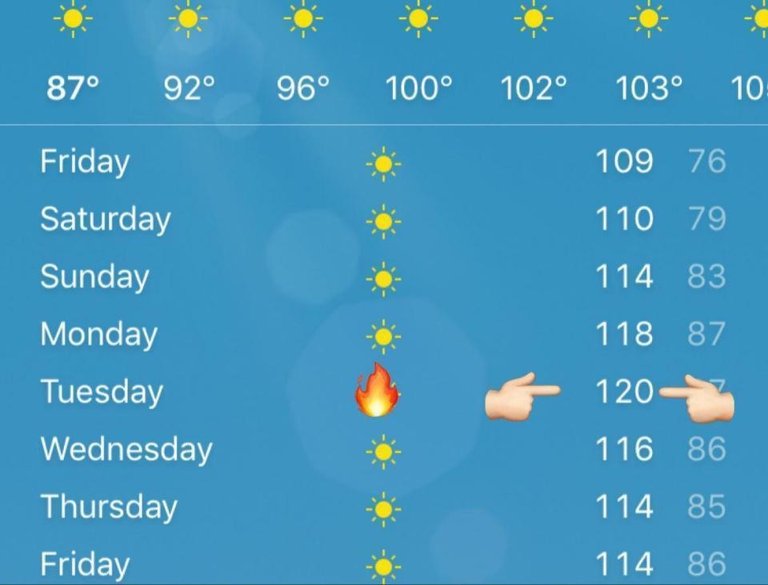Phoenix is considered one of the hottest places in the entire planet.
The temperatures here can reach 140 degrees Fahrenheit. That's insane! We know that Arizona's summer heat is famous, but this seasonal menace continues to get worse.

The temperatures continue to rise each year and climate scientists claim it'll be a scorcher this year.
The city is on track to topping temperatures of 120 degrees or worse, especially with concrete and asphalt loading on the temperature increase every decade.

Officials are doing their best to tackle this dangerous situation as soon as possible.
Steps to plant more trees has been one method to cool Phoenix down as well as incorporating cool-roof technology to reverse or reduce the amount of urban heating.

The temperature is affecting everything, and even technology isn't immune to its effects.
The high temperatures are preventing airplanes from taking off, causing severe delays or cancellations.

If you're looking towards road signs to tell you where to go you're S.O.L.
The high temperatures are causing signs to melt like a wax statue caught in the middle of a horrid fire.

Even traffic lights aren't faring any better in the Arizona heat.
Imagine a summer so extreme that it can melt the metal casing in traffic lights, essentially blinding the red, yellow, and green lights. Traffic must be a mess in this area.

Source: lifebuzz
Hi! I am a robot. I just upvoted you! I found similar content that readers might be interested in:
https://www.youtube.com/watch?v=j0-4edH-mEYGreat writeup!
Keep sharing.@gentcitaku
.
.
good thing there was no such thing as plastic in the middle ages
huh?
it was a LOT hotter then.
Actually, it wasn't. That's a common misconception used by climate change deniers. Parts of the planet were warmer, but average global temperatures were actually lower than that of today. It affected Europe more so than anywhere else.
actually it was
and you're lying
That's a sound scientific argument you're presenting there. Thanks for the input.